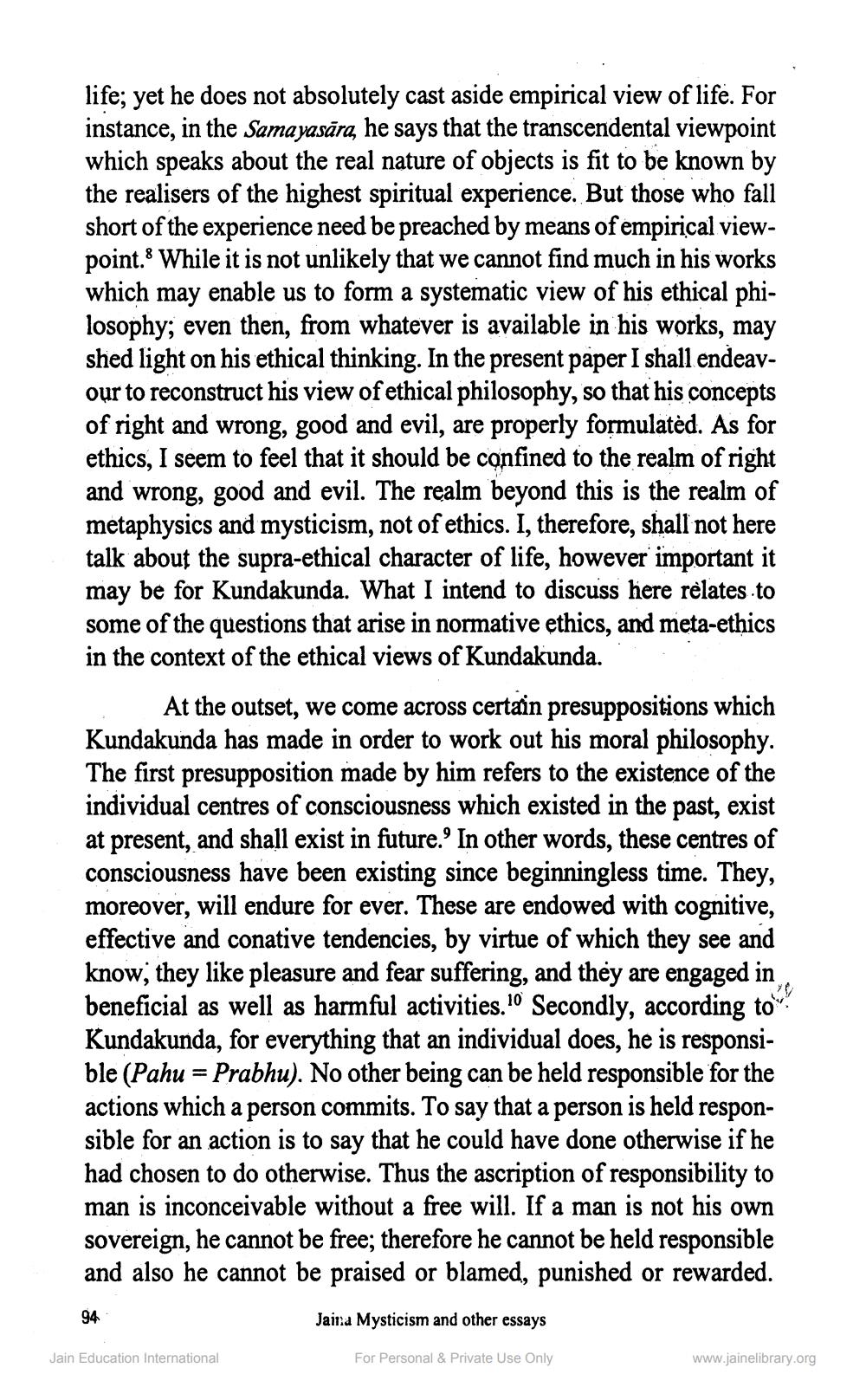________________
life; yet he does not absolutely cast aside empirical view of life. For instance, in the Samayasāra, he says that the transcendental viewpoint which speaks about the real nature of objects is fit to be known by the realisers of the highest spiritual experience. But those who fall short of the experience need be preached by means of empirical viewpoint. While it is not unlikely that we cannot find much in his works which may enable us to form a systematic view of his ethical philosophy; even then, from whatever is available in his works, may shed light on his ethical thinking. In the present paper I shall endeavour to reconstruct his view of ethical philosophy, so that his concepts of right and wrong, good and evil, are properly formulated. As for ethics, I seem to feel that it should be confined to the realm of right and wrong, good and evil. The realm beyond this is the realm of metaphysics and mysticism, not of ethics. I, therefore, shall not here talk about the supra-ethical character of life, however important it may be for Kundakunda. What I intend to discuss here relates to some of the questions that arise in normative ethics, and meta-ethics in the context of the ethical views of Kundakunda.
At the outset, we come across certain presuppositions which Kundakunda has made in order to work out his moral philosophy. The first presupposition made by him refers to the existence of the individual centres of consciousness which existed in the past, exist at present, and shall exist in future. In other words, these centres of consciousness have been existing since beginningless time. They, moreover, will endure for ever. These are endowed with cognitive, effective and conative tendencies, by virtue of which they see and know, they like pleasure and fear suffering, and they are engaged in beneficial as well as harmful activities. to Secondly, according to Kundakunda, for everything that an individual does, he is responsible (Pahu = Prabhu). No other being can be held responsible for the actions which a person commits. To say that a person is held responsible for an action is to say that he could have done otherwise if he had chosen to do otherwise. Thus the ascription of responsibility to man is inconceivable without a free will. If a man is not his own sovereign, he cannot be free; therefore he cannot be held responsible and also he cannot be praised or blamed, punished or rewarded.
94
Jaina Mysticism and other essays
Jain Education International
For Personal & Private Use Only
www.jainelibrary.org




